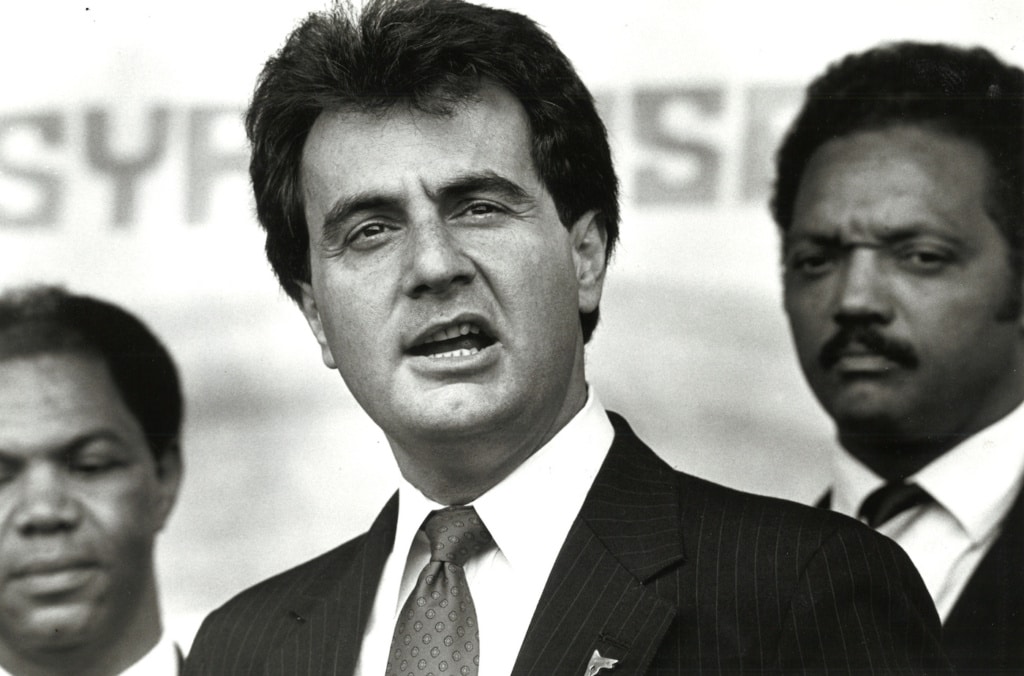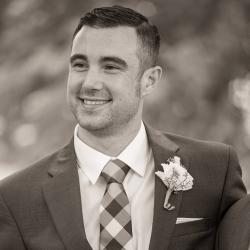Joe Nicoletti may be the oldest Syracuse mayoral candidate at age 69, but he’s also a political animal who has seen it all. A staple in the Salt City public service scene since the 1970s, Nicoletti was part of Mayor Lee Alexander’s administration and has written and established legislation, including term limits. This will also be his fifth time running for the hizzoner spot.
“Yeah, I’ve run four times. People can be sarcastic and make nasty comments online. I keep running, because I love this city,” Nicoletti said during an interview at his campaign headquarters on Spencer Street. “Where am I going? I’m in my 60s. I want to say I helped make Syracuse a better place for everybody.”
As Nicoletti sat in his chair, a red tie fit snugly up to the collar of his crisp, pressed white shirt, his hands had two settings: together with fingers crossed as resting position, or moving around, helping paint a picture for emphasis.
“I want this job,” he declared. “In the next two years we have to turn this city around and have the news recognize Syracuse as the fastest city of its size working its way out of poverty and crime. With this job there are a lot of tough decisions. There are sacrifices. This isn’t about a title: It’s about lives.”
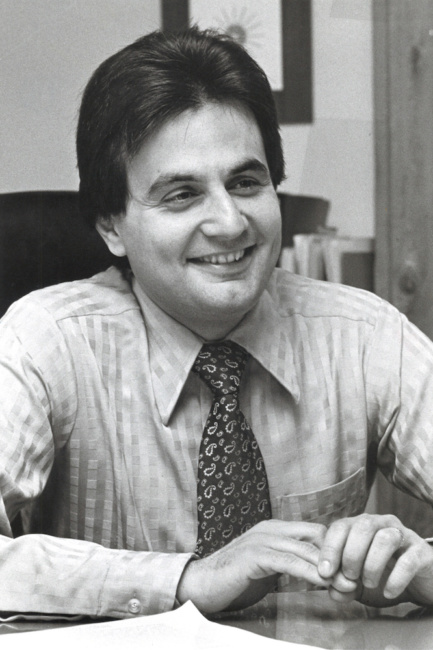
Let’s start at the beginning: You’re Syracuse born and raised.
Yup, I grew up on the North Side. My mom and dad both lived and met in the same neighborhood. They both came from big Italian families. My dad was a steel worker and union guy. He had a huge family of 13 brothers and one sister. My mother volunteered and taught church school. She was one of four.
How did your parents meet?
It’s a political story. My father’s family were Republicans. My grandmother on my mother’s side was a huge Democrat. She was one of the people when Roosevelt or any big Democrat would come through, she’d be on the podium with my mother and … they’d have the roses. Whenever Eisenhower came on television, she’d say, “No believa in this crap. The Republican a-no good.”
My father went to North High School and my mother went to Vocational Central. He used to chase her down the street with all his brothers, and she’d call them a bunch of gangsters. Finally they reached a compromise. If the Democrats won the district, my father would have to leave her alone. If they won, my mother would go out with him.
The story does get skewed. My father said he won. My mother said he didn’t. She said she called the police on him and his brothers, because they were harassing people at the polling places. The two of them were inspectors in the same polling district. Go ahead five years. My father and the whole Nicoletti family were Democrats and my mother’s side of the family were still Democrats. The woman rules the household.
Which high school did you graduate from?
I graduated from Henninger High School. I also went to Salina Elementary and Grant Junior High North. I was part of the first graduating class of Henninger. North and Eastwood high schools were combined. Of course, when we got there, the place was so overcrowded that kids were sitting out in the hallway. Great planning.
What were you involved in at Henninger?
I liked sports, but I couldn’t make the teams. I was involved in extracurricular activities, including student government. Instead of playing hoops or being outside, I was one of the guys sitting in the auditorium watching President Kennedy’s inauguration. It was fascinating. I always questioned how and why it worked.
I’ve always been interested in politics and government. Even at a young age I was fascinated about how government worked. I remember my seventh-grade homeroom teacher Jeanette Pietrantoni. She used to be president of the Syracuse Teachers Association. Her joke always was, “I knew you were always going into government.”
Did you ever play an instrument?
I played the trumpet for seven years. My first music teacher was Tony Pietrocola. When he passed away, Stan Colella was my teacher. In those early years, Stagnitta Music, which was on North Salina Street, had its own marching band. The city schools didn’t have them. The store decided to sponsor a marching band, and I was involved with organizing it with teachers. The color guard was run by a young woman named Rosemary Malouf.
We did quite well. A couple times we had a parade down North Salina, once for Lee Alexander when he was running for president of the City Council or mayor, I don’t remember. It started down by Assumption and ended at the UAW Union Hall, where my uncle was president. That was where the (Open Hand) puppet theater used to be.
Talk about your time attending Syracuse University.
I was a sports nut and my dad used to get us on the field when Ben Schwartzwalder was coaching. As much as I loved football, I started watching this guy named Jim Boeheim playing backcourt with Dave Bing in Manley Field House with all the dirt.
I was involved with University Union and was the concert chairman. I was one of the guys that set up all the concerts and gave us the reputation of being a great party school. The first concert I saw up there was Dionne Warwick and Jay and the Americans. I went to the airport to pick up Jimi Hendrix and Peter, Paul and Mary. I met a lot of cool people like The Who and Led Zeppelin. Janis Joplin was quite the experience.
I looked into Harvard. Mike Sawyer, who was a professor of constitutional law, was friends with Dean Alan Campbell. He was famous for having a very good relationship with the Kennedys. He asked why I was applying to Harvard. He said that Syracuse was the No. 1 school. So I stayed and got my second touch of elective politics, local campaigns.
How did you get your start in politics?
My first experience was in 1960, when I was a boy. My uncle got me to help hold a sign that read “All the way with JFK and LBJ.” We were in Clinton Square, which was a big rally in those days, but it was nothing like now, where they’re huge. I remember going to Hotel Syracuse and President Kennedy, who was senator at the time, bent down and shook my hand. I remember looking at him and he was so bronze and so big to me.
I started working on a few campaigns in college, and that’s how I decided I wanted to be a professional in government. When Lee Alexander ran for mayor, I worked on the campaign and was in Maxwell at that point. One day Dean Campbell and Mayor Alexander came up to me when I was attending a lecture in Maxwell Auditorium. I was offered a job. He liked the work I did on his campaign, and I started working part time.
My first job was to assist the parks commissioner with a budget. Apparently I did a good job and was moved to City Hall with Ann Michel. I split time between federal and state aid department and the mayor’s office.
What was it like working for Alexander? What about the time during his indictment?
It broke my heart like it did for many of us there. Nobody that worked in the administration was touched by this. When he pled guilty, he said nobody in his administration was involved in this. As much respect as I had for the mayor, we had our differences.
In 1977, I was walking out of City Hall when Syracuse Fire Department Chief Thomas Hanlon, who was one of the most greatest and colorful department heads, pulled me into the mayor’s office. We walk in and he tells Alexander that I was being wasted, that he should put me on the City Council. Bob Ward was the councilor-at-large at the time and was transferred to Connecticut through General Electric. Next thing I knew I was the Democratic nominee and elected that year.
(The indictment) did make me want to be in government even more, because I saw the good and the bad. By the time of the indictment, which was in the 1980s, I was working in the administration.
However, this gave me the opportunity to do what I wanted to do: time to work on mandatory smoke detector legislation, building codes, minority business enterprise and women’s enterprise laws. I was told I was one of the leading experts in urban government. What drove me at that point was noticing the city was changing. It was no longer 90 percent white. Even The Herald Journal praised me in an editorial, saying I recognized the changing population and the need to do things differently. I guess that would make me the first progressive in the city.
When I was the majority leader and we went into session the first of the year, I would tell the councilors to check their party affiliations, personal ambitions, animosity and prejudice at the door. That’s how I led for 13 years. We accomplished a lot, including establishing term limits, which I was proud of. I saw that we were not opening up our diversity the way we should. We did housing court and vacant lot reforms, and we started to put an aggressive economic development program together. As time when on, it changed.
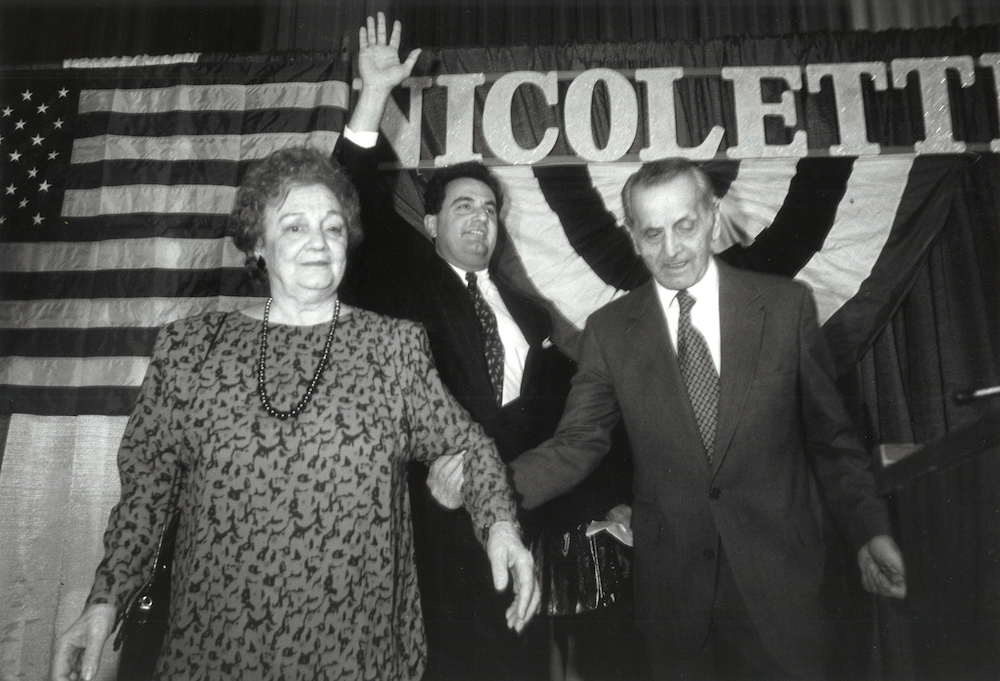
Can you explain your switching parties?
When Roy Bernardi and I ran against each other, he won after a brutal Democratic primary. One day Jim Parenti from his staff called me up and said the mayor wanted to talk to me. I went to see Bernardi and he asked if I wanted to work for the city instead of the private sector. I asked him if he had a fever. I accepted the position and went back to work. He never put pressure on me to politically affiliate during those beginning years, and I was able to run the departments.
During that time period, Bernardi gave me two or three challenges and leeway. One was to go after my dream of changing Clinton Square. We built the skating rink. Unfortunately, at this point it needs some changing and maintenance. Secondly, he allowed me to take on the 1998 Labor Day storm and special projects.
I’ve said it: It was a mistake. I temporarily switched registrations. It took 24 hours for me to realize it was a mistake, and it took one cycle for me to change it back. That was 27 years ago. None of us are perfect. One of the things that lack in this profession is the ability for people who seek public office to think they can’t be wrong. Voters respect it when you say, yeah, I made a mistake or I tried this and it didn’t work.
Is it still important to question?
It’s never bad not to question.
Do you enjoy campaigning?
I love to campaign, especially in the poorer neighborhoods. There’s love. There’s passion. There’s excitement. When you’re mayor, you’re not a Republican or Democrat. You’re a public servant. Take care and reflect the views of constituents regardless of personal convictions.
I hate the politics side of it. It’s hypocritical. I wish we could remove it. We get caught up in all these stereotypes, people trying to persuade you that they’re this or that. It’s not what this job is about. I’ve worked with five mayors and have been partially in charge of the city with two of them.
What do you do to relax?
Listening to music is relaxing. I was a Woodstock kid, so I listen to that music, plus Motown, country-western, rock and hard rock. My taste is pretty eclectic. I’m also an old movie buff, dating back to the Errol Flynn days.
I enjoy reading, especially Team of Rivals by Doris Kearns Goodwin. There is something in it for everyone and it teaches a lesson about humility. Lincoln knew he had to bring in all of his rivals to save the Union. He took abuse, but he was a great president.
I love working in the yard. There’s something about putting your hands into the earth and digging. I also love spending time with my family and volunteering at my church.
Any Sunday habits?
Yeah, I usually get up, walk the dog and go to church. After I talk to Father and the parishioners I’ll head over to the bakery or grab a cup of coffee up the street with the guys from church. Usually I’ll go to one of my neighbors and have coffee with them before heading over to see the grandchildren. We try to do family dinners on Sundays, but it’s difficult with campaigning.
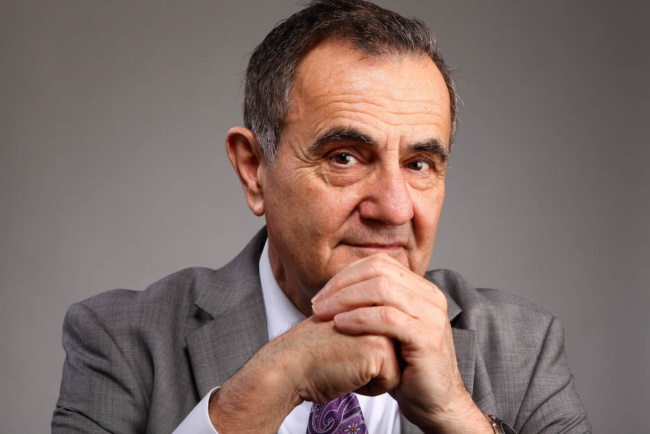
Which church do you go to?
Our Lady of Pompei/St. Peter’s. I don’t talk about it much, but I spend a lot of time helping others. My dad used to tell us you judge a person not by what they look like, not by what they talk like, but what’s in their heart. He also said you base the success of your community based on what the least of us have.
Do you think there was a better sense of community growing up compared to now?
Yes. I’d like to see us get back to respecting each other. Our diversity is a strength. Now there is divisiveness. Some people think to be a leader they have to be divisive. They have to be tough. They have to be ruthless. Leadership is not about that. If you look at all the world, religious and political history, the greatest leaders are people of gentle ways: Gandhi, Mother Theresa, Pope Francis and Abraham Lincoln.
Do you enjoy and feed off of people trying to make the city better in some effort or another?
I love the fact people want to make this a better city. Downtown is becoming a neighborhood. Yes, it has many milennials in it. But unless we provide the services that are needed in any neighborhood, as fast as it may be growing, people will move away.
We need to have more police officers, grocery stores, parking options, safety and code enforcement. Especially with that, we need to learn from our mistakes. It’s absentee property owners. We also need to provide quality schools, and to accomplish that involves working with the schools, state education system and state government.
Where do you like to go out to eat?
Ah! Riley’s, Attilio’s, Grimaldi’s, Francesca’s, Asti’s. I also like what’s going on at the Hotel Syracuse, the Marriott Syracuse Downtown.
Is there a meal you can’t live without?
I can’t live without an Italian dish of macaroni. I have to have it at least once a week. I can make the best sauce in the world. My mother taught us how to cook it all: braciole, meatballs, everything. Everybody was welcome on Sundays. When we’d come home from church, my mom would be frying meatballs. My friends and my father’s friends would come over. My mother would say, “I’m sitting here making meatballs and you’re eating them meatballs faster.” We’d also make trips to Di Lauro’s or Columbus Bakery for bread.
Were you the type of family to buy a couple loaves and eat one on the way home?
(Smiles, nods head.) Sometimes we’d get three. Everybody was always welcome. That’s how I became an extrovert. It’s not an act. I am who I am: It’s how I was brought up.


